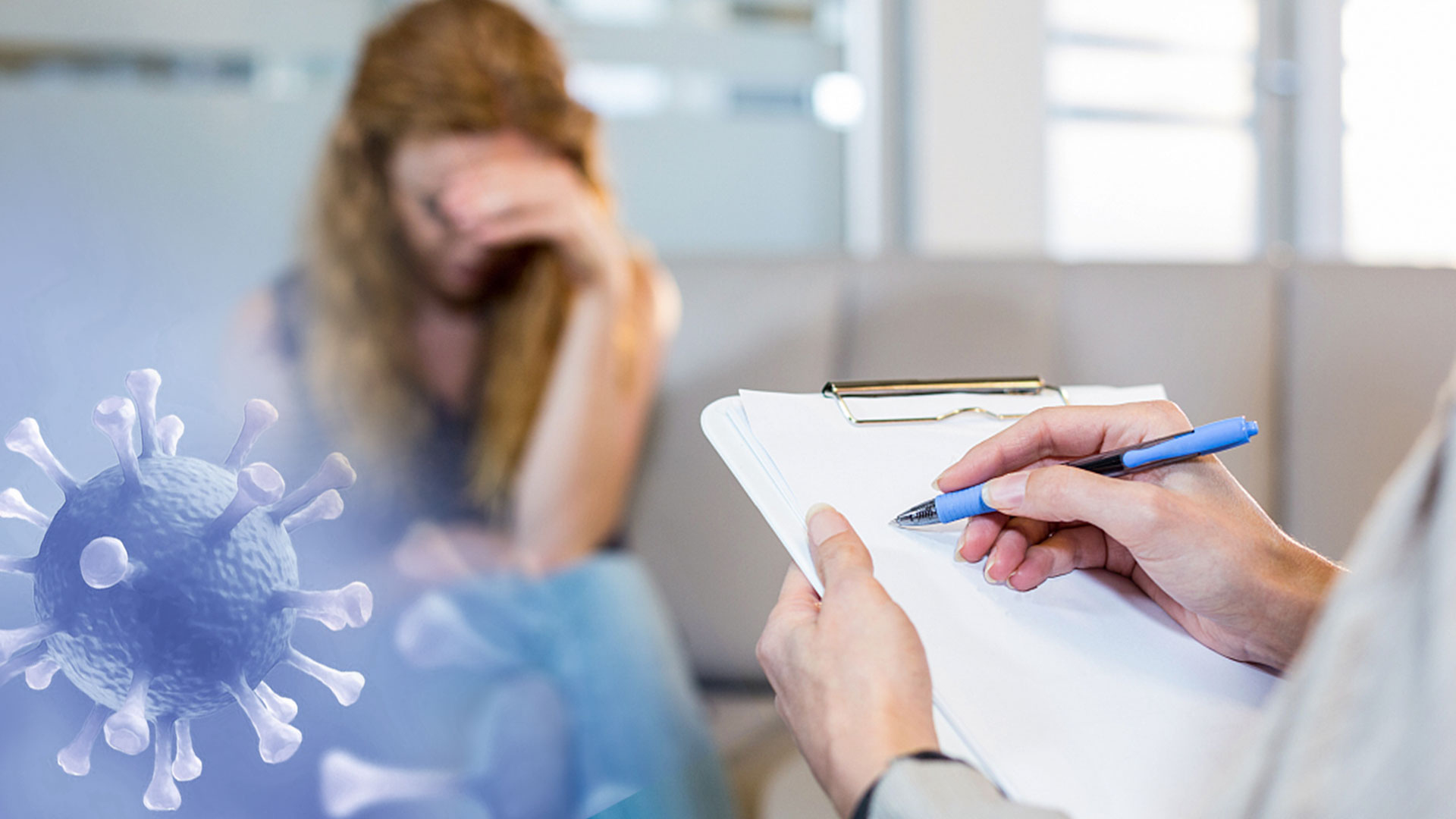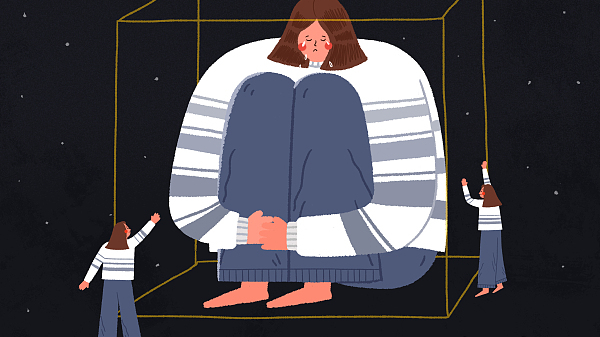
Suspected cases are patients who have similar symptoms to those exhibited by confirmed COVID-19 cases – such as fever, fatigue, muscle soreness, nasal obstruction, runny nose, cough, expectoration, chills, shortness of breath, etc. – but have not been confirmed in laboratory testing.
Suspected cases, while waiting on a diagnosis, may have physical discomfort and a great sense of uncertainty and fear, and even a series of mental and psychological problems, such as anxiety, fear, insomnia, nightmares, sadness and hopelessness, oversensitiveness, even dysphoria and aggressiveness, etc. In this silent war against COVID-19, suspected cases face more fear of the unknown while suffering from physical pain.
Ms. W, aged 45, had traveled to the affected area for two days 10 days ago, and had fatigue and cough with a body temperature of 38 degrees Celsius in the past two days. Ms. W became anxious and fearful of having COVID-19. She could not stop swiping her phone and checking for updates on Weibo, China's version of Twitter, and searching online for medical information about the novel coronavirus, 2019-nCov.
She tried self-diagnosis, and became increasingly afraid and worried with more information learned. It was difficult for her to cease browsing related articles with her phone even if she turned off her computer and lay on her bed. She began to hesitate going to the hospital the next morning.
On the one hand, she was afraid that the doctor would isolate her; on the other hand, she worried about being infected with COVID-19 at the hospital if she did not already have it. Moreover, she was afraid that her family was already infected if she had COVID-19. She felt like she was committing a sin.
After a long period of hesitation, Ms. W came to the hospital alone, and remained in the hospital under observation and isolated after the hospital knew her condition. While waiting on a diagnosis in the hospital, Ms. W lay awake all night, and could not get one thought out of her head: "Do I have COVID-19?"
She repeatedly asked the doctor when she would receive her test results, and recalled dribs and drabs of the business trip to the affected area. Feeling anxious and afraid, she was unable to sit down or sleep at ease, and took out her phone every few minutes to take a look. She even thought of death. Continuous panic attacks and a weak chest aggravated her cough.

Although suspected cases have not yet been diagnosed with COVID-19, they have undergone a series of psychological and physical changes, of which the following are the most obvious:
I. Sense of uncertainty
Compared with confirmed cases, suspected cases are characterized by a sense of uncertainty. Although confirmed cases, their family members and medical workers worry about whether they will get well, whether there will be aftereffects of the disease, and how the epidemic will evolve, etc., suspected cases have a strong sense of uncertainty as they are unsure whether they have been infected. The strong sense of uncertainty makes them anxious about life and fear death, etc.
People need definitive answers as to why their body is functioning normally or not, which leads to compulsive search behaviors. Suspected cases often seek and thirst for any seemingly definitive bit of information, but doubt the accuracy of it, leading to increased anxiety.
The sense of uncertainty will trigger anxiety in every respect, making people sensitive, suspicious and hesitant.
II. Cognition of fear and catastrophizing
Facing health hazards and the uncertainty of life, our survival instinct will make us afraid or even angry. On the one hand, we should admit our anxiety, fear and anger. These emotions are our normal response to stress/danger. Moderate anxiety helps improve our vigilance level and favors the survival and creation of individuals. On the other hand, anxiety and fear will be exacerbated and amplified by our involuntary catastrophic thinking, especially in the era of information explosion. In most cases, we will be consciously or unconsciously overwhelmed by relevant information of COVID-19. Seeing available updates on Sina Weibo and WeChat moments and checking your phone every few minutes bring more worry and fear. The emotional and personal information on social media has stirred within us a deep sense of fear and weakness, and even the anger at others or society.
III. Fear and somatic response
When symptoms such as fever and cough develop, catastrophic thinking will become more real, generating fear of death, guilt and regret about our behavior. "Will I die from COVID-19? What will happen to my family? They were infected because of me, and the evil I brought on myself is the hardest to bear." Anxiety and fear will activate our sympathetic nervous system, aggravating our original symptoms and even leading to new symptoms such as palpitation, weak chest, shortness of breath, constipation and frequent urination, etc. Now, our anxiety and fear will be magnified infinitely, leading to a vicious circle of anxiety and fear.
Stories in this series were contributed from Tencent Medpedia medical team, which were written and reviewed by medical experts from China's top hospitals. It is intended for informational purposes only, not a substitute for professional medical advice, diagnosis or treatment. Never ignore professional medical advice in seeking treatment because of something you have read on our website. If you think you may have a medical emergency, immediately call your doctor, or go to the hospital.